36th Annual
Martin Luther King Jr. College of Ministers & Laity and Rededication of the Chapel

Saving Democracy While Thriving in the Wake of Cosmic Trauma
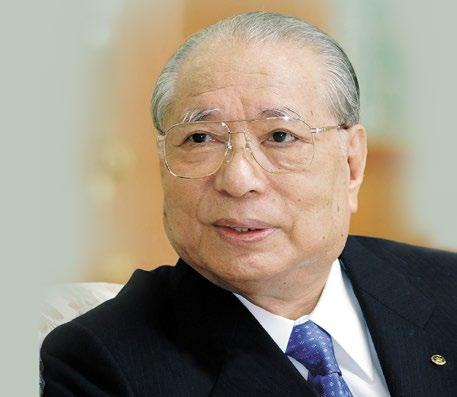
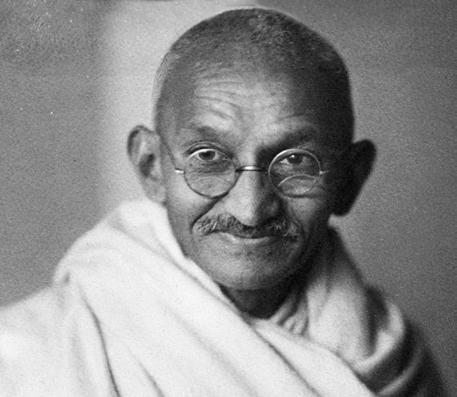
Thursday, Oct. 13, 2022 at 11 a.m. benjamin elijah mays induction crown forum
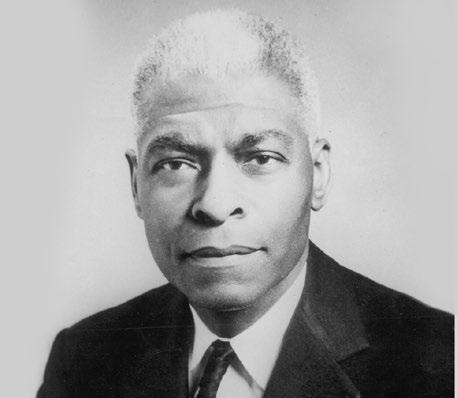
Thursday, Oct. 13, 2022 at 7 p.m. worldhouse interfaith assembly


ATLANTA, GEORGIA
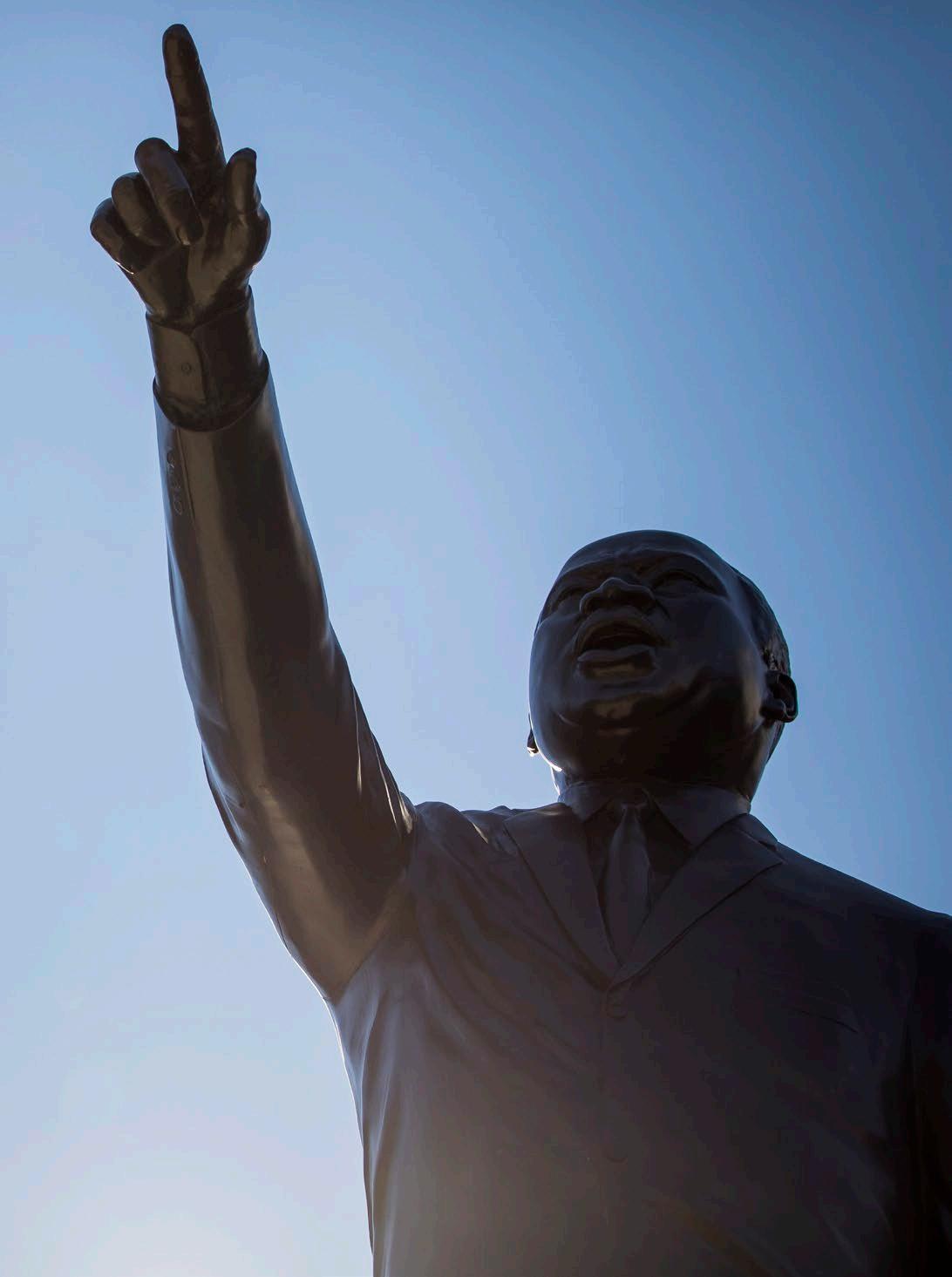
2 Morehouse College
[] Litany for the Rededication
of the Martin Luther King Jr. International Chapel
DEAN LAWRENCE EDWARD CARTER SR.:
Because President Samuel Graves made Morehouse College a geographical memorial, engraving a moral imperative to sanctioning the Emancipation Proclamation for freeing American slaves and sustaining Reconstruction; a memorial honoring Blacks, who under the courageous leadership of Harriet Tubman, strengthened the Northern army and nobly gave their lives to preserve the Union, We, the inescapable we the people, rededicate the Martin Luther King Jr. International Chapel on this hallowed ground to fulfill the spiritual ideal that all persons are created equal. We rededicate the Martin Luther King Jr. International Chapel to the healing of the omniverse as our sacred thriving home, and to breaking the colonial grip on the curriculum of the global academy in the wake of cosmic trauma.
CONGREGATION:
Because American slavery was a war against African culture and the structure of the African family, we rededicate the Martin Luther King Jr. International Chapel for the sake of peace as a fortress for humanity awakening to its spiritual magnificence, toward discovering the creative healing power of divine thoughts, and virtue-ethical technologies. Like Dr. King, we dream a world where every person discovers their own personal agency and ability to evolve an individual life working within the Cosmos, laboring, and achieving for everyone.
DEAN CARTER:
We rededicate the Chapel as an affirmatorium to illuminate the inner nature of human beings, and to inspire them to live and grow as one planetary family that respects and honors the interconnectedness of all life; that honors a world where this kinship with all life prospers and connects under the guidance of truth telling, inclusive ancient sacred wisdom, and moral cosmopolitan values.
CONGREGATION:
We rededicate the Chapel as nurturer of ancient world religions: Hindu-Buddhist-Judaic-ChristianIslamic love, light, life, and learning. We rededicate the Chapel to “a darkly radiant vision, the Black social gospel” tradition that Martin Luther King Jr. shadowed to envision the moral arc of the universe bending toward justice and joy.
DEAN CARTER:
We rededicate the Chapel to a world where personal accountability joins critical conscience in every area of environmental, political, spiritual, medical, corporate, academic, economic, and cosmic sectors, providing equitable structures to further the emerging universal consciousness.
CONGREGATION:
We rededicate the Chapel to being an intentional spiritual community, working for authentic inclusive security for our infinite dwelling, understanding that the key to a flourishing catholic future is the abolition of nuclear weapons.
DEAN CARTER:
We rededicate the Chapel to a solar system in which resources are valued, cared for, and grown, and where there is generous, and continuous sharing of these resources internationally.
CONGREGATION:
We rededicate the Chapel to being a determined divine community, striving for sustainable cooperation as a metaphor for justice, integrity, and peace, by focusing on viable responses to the unmet human needs of perpetrators of physical and verbal violence, so all their days will unfold in serenity, strength, and happiness.
DEAN CARTER:
We rededicate the Chapel to be a culture where forgiveness and reconciliation are the norm, and where there are thousands of useful nonviolent ways to respond effectively to conflict, handle anger, stop violence, and anything that hurts, including interruptions, especially silence.
336th Annual Martin Luther King Jr. College of Ministers & Laity
continued on page 4
[]
Litany for the Rededication
of the Martin Luther King Jr. International Chapel
CONGREGATION:
We rededicate the Chapel to being a mentoring environment committed to respecting the sacredness of life, to usher in a total dignitarian sociality, where we teach, preach, and reveal that the most important skill in practicing nonviolence is respectful and compassionate listening to what other people say to fully understand their real feelings.
DEAN CARTER:
We rededicate the Chapel to a galaxy that has renewed its emphasis on beauty and nature, through the resurgence of creativity, art, and aesthetics.
CONGREGATION:
We rededicate the Chapel to being wedded to a cosmic consciousness of solidarity rights by co-creating an axiologically-inclusive and healthy learning environment for all children and adults in schools and in society, reverential toward differences in people!
DEAN CARTER:
We rededicate the Chapel to a megaverse that is expanding for everyone and for all of God’s creation.
CONGREGATION:
We rededicate the Chapel to being the beloved economic, political, religious global community, committed to participating in and protecting the rights of all to finance, vote, and worship in ways befitting a democratic republic.
DEAN CARTER:
We rededicate the Chapel, not to perfection, but to a faithful spiritual practice, without judgment, because compassion, encouragement, and affirmation are far better motivators for staying on the path to wholeness. Our desire is greater empathy and connection with our souls, humanity, and the consciousness of God.
CONGREGATION:
We rededicate the Chapel to embracing the parliament of all the people, a United Nationscentered effort to overcome the climate crisis, and the consequences of American slavery.
DEAN CARTER:
We rededicate the Chapel to put human life on an ascending course to become stronger, better, and wiser; and by so doing, bless unborn generations with the harmony of diversity—maturity, and metropolitan value pluralism.
CONGREGATION:
Our North Star must be our shared obligation and responsibility, which check all personal, social, and religious freedoms to guarantee our being, knowing, and civilization.
We, the trustees, administrators, staff, faculty, alumni, students, and neighbors extend our profound gratitude to President Hugh Morris Gloster Sr., President Walter Eugene Massey, and President David Anthony Thomas, all of whom made this Rededication of the Chapel possible.
ALL:
We rededicate the Martin Luther King Jr. International Chapel to the call to Christ consciousness, to “enough love” and enough service to transform the world, so all may wear the crown! As Emmett Fox has said,
“There is no difficulty that enough love will not conquer: no disease that love will not heal: no door that enough love will not open…
It makes no difference how deep set the trouble: how hopeless the outlook: how muddled the tangle: how great the mistake. A sufficient realization of love will dissolve it all.
If only you could love enough you would be the happiest and most powerful being in the world.”
So Be It! And So, It Is! Amen!
by Lawrence Edward Carter Sr.+
4 Morehouse College
P relude
[]
Benjamin Elijah Mays Induction Crown Forum
The Reverend Dr. Lawrence Edward Carter Sr. Presiding Founding Dean of the Chapel and Professor of Religion
“Fantasia in G Major, BWV 572” Johann Sebastian Bach “Now Thank We All Our God” Sigfrid Karg-Elert
Dr. David Francis Oliver
P rocessional “Trumpet Voluntary” John Stanley Dr. Oliver
sounding of the shofar Senior Rabbi Larry R. Sernovitz
Mr. Jonathan Warner Temple Kol Emeth, Marietta, GA call to order
The Reverend Dean Carter Sr. the litany for r ededication of the c ha Pel Dean Carter the r ededication P rayer
The Right Rev. Robert Christopher Wright 10th Bishop, Episcopal Diocese of Atlanta, Atlanta, GA the c harge to the i nductees
The Reverend Dr. Amos C. Brown ‘64 Senior Pastor, Third Baptist Church San Francisco, CA
2022 Class of Inductees into the Martin Luther King Jr. Board of Preachers, Sponsors, and Collegium of Scholars
Sa’ed Atshan
Marlon Bailey David Ballard II Candice Marie Benbow Joshua Brandon Bennett Regina N. Bradley Cornell William Brooks Danielle L. Brown Thema Bryant Vernon Orville Burton Anthea Butler Timothy Careathers Sylvia Cook
Tori Cooper David M. Copeland Claudette A. Copeland
Vicki Crawford Brandon Thomas Crowley James Earl Davis Tina Davis
Crystal Anne de Gregory Darrell Antonio Drumwright Cecil Andrew Duffie Jerrolyn Sue Eulinberg* Joseph Evans J. Louis Felton Kenyatta R. Gilbert Jason Goulah
Jaron Stephen Green Ahmad Tyree Greene-Hayes
Daniel G.P. Gutierrez Beverly Guy-Sheftall
Renee K. Harrison Jodi Henderson Jessica Kendell Ingram Alicia Marie Johnson Deon K. Johnson Cory L. Jones Shonda Jones Elijiah Bernard Jordan Axelle Karera Gail N. Kemp Joel Bernard Kemp Robert Wright Lee IV Asa Jerome Lee Raquel S. Lettsome Velma E. Love David Marriott
Allison Mathews Marcyus McCullough Joel Mitchell Naomi A. Mitchell Marshall Paul Hughes Mitchell Maurice Joseph Nutt Terry Ofori
T. Anansi Olajuawon LaVon Owens James Perkins Anthony B. Pinn Phillip L. Pointer Sr. Dante R. Quick Sr. David Wall Rice Anthony Lamar Riley Floyd E. Rose
Cassius Rudolph Michael Sawyer Eugene James Se’Bree* Larry R. Sernovitz Edward L. Thomas John Thomas III Darrell Tiller Priscilla Wilder Andrew James Wilkes Gabriella Elizabeth Cudjoe Wilkes
Reginald W. Williams Jr. Matthew Wesley Williams Shante Younger Marvin Clyde Zanders II
*Deceased
Martin Luther King Jr. International Chapel Assistants Morehouse College Glee Club i ntroduction of sPeaker David A. Thomas, Ph.D. 12th President, Morehouse College
P resentation of citations
World P remiere r ededication a nthem
“See the Victory Before Us and Walk On” Words and Music by Dr. Uzee Brown Jr.’72
sermon “A House Is Not A Home: A Solomonic Phenomenology”
Morehouse College Glee Club
The Reverend Dr. Dante R. Quick Sr. ’92 Senior Pastor, First Baptist Church of Lincoln Gardens Somerset, NJ
“A Salute to the Martin Luther King Jr. International Chapel” Ambassador Andrew J. Young
Former U.S. Congressman; First African American Ambassador to the United Nations; Former Mayor, City of Atlanta; Co-Chairman, Atlanta Committee for the 1996 Olympic Games c ollege hymn
“Dear Old Morehouse” J.O.B. Mosley ’29
Dr. David Edward Morrow ’80, Professor, Chair of the Music Department, Director of the Glee Club Dr. David Francis Oliver, Morehouse College Organist
Luther
College
136th Annual Martin
King Jr.
of Ministers & Laity
The Occasion
To Celebrate the Twenty-second Anniversary of the Gandhi-King-Ikeda Institute for Cosmopolitan Virtue-Ethics and Reconciliation
Today, we gather to celebrate the twenty-second anniversary of the Gandhi-King-Ikeda (GKI) Institute for Cosmopolitan Virtue-Ethics and Reconciliation, a program that focuses on meditation, conflict transformation, and peace. As we work together locally and globally to create a legacy of nonviolent teachings, it will be an audacious challenge calling for justice, peace, and compassion for the children of the world. We must be the change we wish to see.
We celebrate the immortal spirits of Mahatma Gandhi and Martin Luther King Jr. and the living wisdom of Daisaku Ikeda that emanate from the times and places of their lives into the future and throughout the entire world. We must be the change we wish to see.
We honor the founding of the GKI Institute to heal and revive human hearts and minds deeply wounded by violent ideologies and inequalities to open the way for a new chapter in human history. We must be the change we wish to see.
We celebrate the creation of the GKI Institute because the Mahatma demonstrated unconditional love in recognizing the need for training and discipline that has also served as a cornerstone for the work of King and Ikeda. They exhibited an awareness that it is only by developing the discipline of self-control that people truly understand the science and spirituality of nonviolence and use it to overcome their weaknesses and realize their own strength. We must be the change we wish to see.
We advance the personalities and principles of Gandhi, King, and Ikeda for their exalted way of peaceful living, inspired by a deep sense of compassion; and because of their commitment to creative social reform, leading
people to develop global networks of peace and spiritual solidarity. We must be the change we wish to see.
We forge a mission to link the “love-olutions” of Mahatma Gandhi, Martin Luther King Jr., and Daisaku Ikeda, so that the three may come together at this hour to transform the old world into a new WorldHouse of moral citizenship, tolerance, respect for difference, and diversity—maturity grounded in spiritual oneness. We must be the change we wish to see.
We commemorate the life, legacy, and character of the barefoot saint of India who believed in the immense spiritual and religious potential that resides equally in each of us. His legacy inspired King and Ikeda to become prophets of inner spiritual transformation for individuals and communities that has sparked reformations in politics, education, economics, and cultures as well as, reconciliation between nations, races and religions. We cannot have what we are not willing to be. We do not get what we desire, we get what we are.
Therefore, because the Mahatma’s spiritual legacy is one of humanity’s priceless treasures, we, the people of the planet, strengthen our numerical forces at this critical juncture in history to accelerate the Gandhi-King-Ikeda Institute for Cosmopolitan Virtue-Ethics and Reconciliation in the Martin Luther King Jr. International Chapel at Morehouse College and the global movement for peace and nonviolence. Today we teach activism, nonviolence, optimism, and populism in the spirit of Gandhi, King, and Ikeda promoting a holistic vision for the growth, health, safety, and wellbeing of our evolving beloved economic and political world community. Our vision is the creation of a global society in which the full development of each individual’s potential is the central goal.
Morehouse College
2 [] Adapted from the dedicatory Litany to establish the Gandhi Institute, April 2, 2000.
From the President of the College
Welcome from the President
What a pleasure it is to welcome you to the Rededication of the Martin Luther King Jr. International Chapel and the 36th Annual Martin Luther King Jr. College of Ministers and Laity at Morehouse College. Since my arrival, much has changed at Morehouse, in the nation, around the world, and beyond. These are exciting times, and thanks to the support of so many, Morehouse is transforming ourselves to transform the world.
Led by the 43-year commitment and visionary leadership of the Reverend Dr. Lawrence Edward Carter Sr., founding dean of the Chapel, professor of religion and curator of the College, the edifice you are in has also experienced a magnificent transformation. There are more enhancements on the horizon and Morehouse owes a debt of gratitude to the vibrant leadership and the enduring legacy that Dean Carter is demonstrating. Each honoree and attendee at this celebratory rededication are reaping the benefit of the keen and watchful gaze of our beloved dean and I offer a personal word of thanks for his extraordinary contributions. His staff and other Morehouse team members have contributed tirelessly to the effort to make this a time to be remembered.
Congratulations to the exemplary group of 2022 honorees and inductees, including the Reverend James Morris Lawson Jr., whose sacrificial contributions to justice, equality, and spiritual connectedness make him the perfect recipient of the Gandhi-King-Ikeda Community Builder’s Prize. In addition, Morehouse welcomes the incredible cadre of dynamic speakers, panelists, and other contributors, including the induction preacher, Rev. Dr. Dante R. Quick Sr. ’92, the luncheon speaker, Rev. Dr. David Jefferson Sr., and the Interfaith Assembly speaker Rev. Al Sharpton. We look forward to their timely insight, expounding upon the theme drawn from the scholarship of Rev. Dr. Thema Bryant-Davis, “Saving Democracy While Thriving in the Wake of Cosmic Trauma.”
We also look forward to reveling in the exclusively commissioned new music created for the occasion by Dr. Uzee Brown ’72, appropriately titled “See the Victory Before Us and Walk On,” which will be performed by the renowned Morehouse College Glee Club accompanied by Dr. David F. Oliver on the newly restored Wendell Phillips Pipe Organ.
There are too many donors to thank for the financial support that has made this rededication possible. In particular, we would like to thank Russ Hardin and the Robert W. Woodruff Foundation for jump starting the physical restoration of these historic facilities. Morehouse is grateful to everyone who energetically supports the Chapel’s incredibly important work to foster sustainability, peace, understanding, and equity in the world.
Thank you for your continuing support and engagement as the legacy continues.
Sincerely,
David A. Thomas, Ph.D.
 Twelfth President, Morehouse College
Twelfth President, Morehouse College

336th Annual Martin Luther King Jr. College of Ministers & Laity
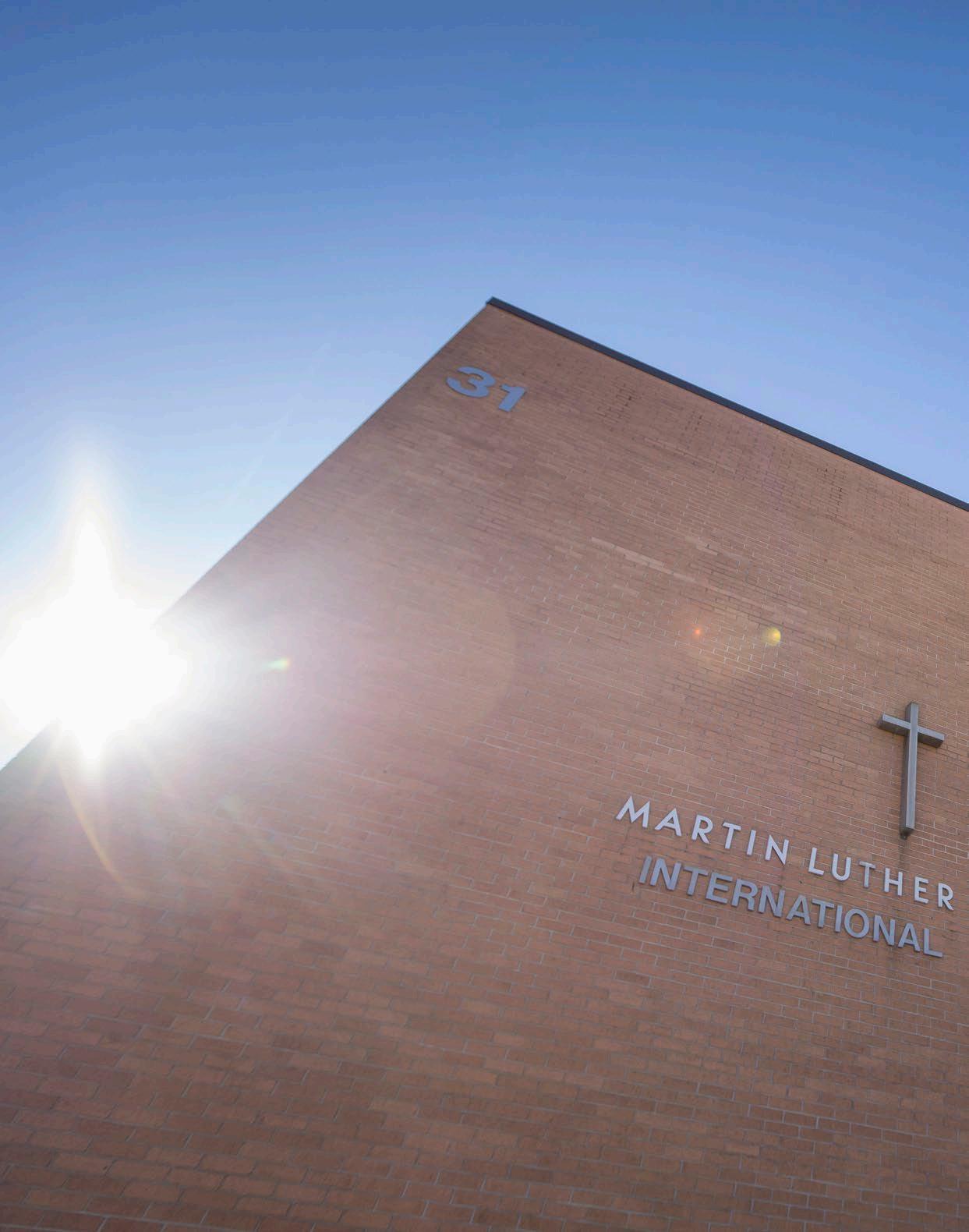

From the Dean of Chapel
FROM THE DEAN OF CHAPEL
Welcome from the Dean
We extend a warm welcome to all who learn, worship, and aspire in the Martin Luther King Jr. International Chapel today. Our purpose as an intentional spiritual community is to be a living environment for individuals to realize that they are unique emanations of God, the love-intelligence governing the Omniverse. We embody an understanding of our oneness with God, and we consciously practice this truth in our everyday lives. Through the wisdomagency of normative cosmopolitan personalist virtue-ethical optional technologies, and the energy of unconditional love, we are committed to individual transformation, and to being a beneficial presence in the cosmos. Simply, we are here for God!
It is our hope that this experience of awareness, prayer, praise, prophetic and pastoral preaching, praxis, and philosophy will greatly enrich your life and bring you into a meaningful connection with God, nature, and people in a holistic understanding of Christian cosmology as moral cosmopolitans.
Historically Black churches and historically Black colleges, with chapels, appeared from the mind of Black and White northern and southern freedom loving abolitionists, as the strongest way to fight racial oppression, promote Reconstruction, and champion the Black social gospel. This tradition affirmed the dignity, sacred personhood, creativity, and moral agency of African Americans, and launched a new liberal liberationist abolitionism with an advanced role for the Black church, fresh from the freedom spaces of Brush and Hush Harbors, and the celebratory sounds, symbols, and traditions of West Africa, in response to the tragedy of American legal slavery.
The Crown Forums, the First Year Assemblies and the Vesper Hours address the deepest aspirations of the human spirit, that transcend needs, pain, suffering, and death. In so doing, they seek to affirm and enliven whatever may be the religious orientation, which gives meaning and richness to your life, and deepen the authentic lines along which your quest for spiritual reality has led you. Your time in the College Chapel is an hour of challenge, critique, responsibility, dedication, evaluation, obligation, stimulation, and a commitment to actualizing potentials, as you consider the issues affecting the sacredness of our common humanity and autonomy competency. The Chapel is a symbol of the intent of Morehouse College to recognize spirituality—sustainable cooperation and justice—as fundamental to the human experience.
We look hopefully toward our common future with the informed expectation that your participation during these days, and ongoing activities emerging from your diverse, but conscientious perspectives, will creatively transform the Cosmos in just and nonviolent ways. Peace is Possible!
Sincerely,
Lawrence Edward Carter Sr., 33˚Ph.D., D.D., D.H., D.R.S., D.H.C., MULT.

Founding Dean of the Chapel, Professor of Religion, College Archivist and Curator Founder, Gandhi-King-Ikeda Institute for Cosmopolitan Ethics and Reconciliation Director, Martin Luther King Jr. College of Pastoral Leadership Chairman, Howard Thurman Spiritual Educational Trust Director, WorldHouse Academy Co-Founder, Covenant

6 Morehouse College
The Reverend Danté R. Quick, Ph.D.
The Reverend Danté R. Quick, Ph.D., was installed as the fourth senior pastor of First Baptist Church of Lincoln Gardens (FBCLG) in Somerset, NJ on June 12, 2022.
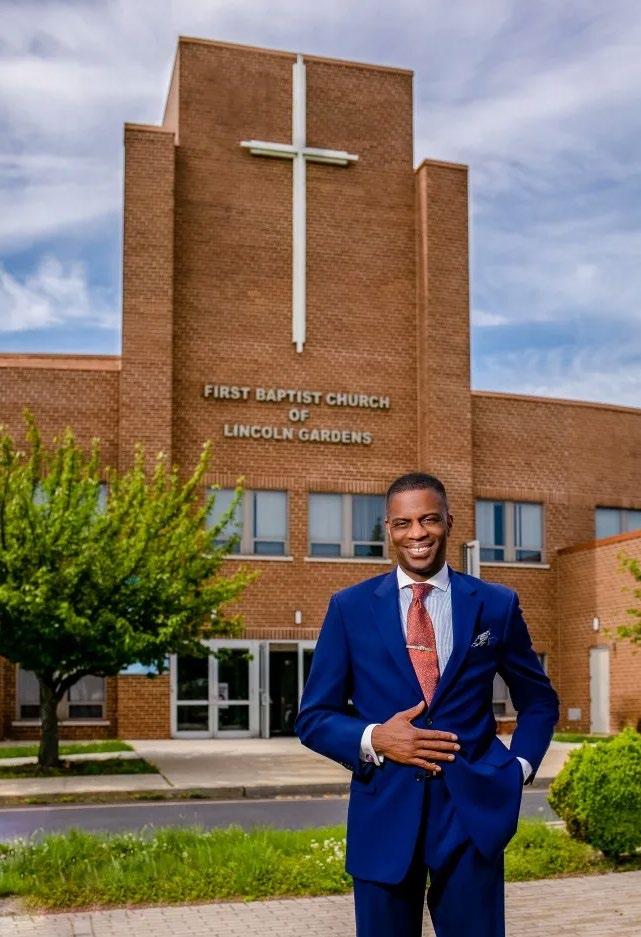
Prior to joining FBCLG, Pastor Quick served Friendship Missionary Baptist Church in Vallejo, California, for more than ten years. He began his pastoral ministry there on Aug. 1, 2010 and was installed as senior pastor on Aug. 7, 2011. After his arrival, the church had extraordinary growth, both spiritually and numerically. Only eight weeks into his tenure, Reverend Quick and the Friendship family were featured on the front page of the Times-Herald as “one of the largest African-American congregations in Vallejo.”
Pastor Quick was born and reared in Washington, D.C. He relocated to Atlanta to attend Morehouse College where he received a Bachelor of Arts in political science with a concentration in pre-law. While at Morehouse, he was one of the first recipients of the William H. Cosby Grant for Landmark College’s gifted-dyslexic student program.

Pastor Quick accepted his call to ministry under the pastorate of the Reverend Dr. Aaron L. Parker of the Zion Hill Baptist Church in Atlanta. In response to his commitment to serve God, Pastor Quick received a Master of Divinity with a concentration in theology from Princeton Theological Seminary in Princeton, NJ. He was the recipient of the Jean Anne Swope and James L. Mechem Prize in Christian Ethics. He served as the president of the Association of Black Seminarians, an organization that represents all Princeton seminarians of the African Diaspora. Pastor Quick also served on numerous student/faculty committees and as a graduate chaplain for the African-American students at Princeton University. Pastor Quick published his first article entitled, “The Relevance of Race,” in the Princeton Theological Review and is a contributor to the African-American Lectionary.
Pastor Quick has served both the church and the academy in several capacities. In 2006, he was called to serve New Liberation Presbyterian Church in San Francisco, which experienced phenomenal growth in attendance and internal love. In addition, Pastor Quick served as a policy analyst for ITC/Faithfactor, a presidential initiative of the Interdenominational Theological Center in Atlanta. In that capacity, he developed and delivered training materials and programs to aid African-American churches and leaders in engaging in community development programming.
Secularly, Pastor Quick has served in the offices of Mayor Marion Barry, Congressman John Lewis, and Governor Zell Miller. He also served as the legislative representative for the Atlanta Board of Education. In these capacities, he has addressed audiences at the National Conference of Black Mayors, the World Conference of Mayors, and the National Conference of Black Men. He also served as the special programs administrator for the Fulton County district attorney in Atlanta.
Pastor Quick relocated to the Bay area to pursue a Ph.D. in philosophical and systematic theology, as well as African-American Studies, at the Graduate Theological Union, University of California at Berkeley. Upon his acceptance, he was awarded the President’s Award and the William Randolph Hearst Scholarship. His studies were focused on the theology of Howard Thurman and the political philosophy of Ralph Bunche en route to the construction of an African-American political theology. He was the first appointed Howard Washington Thurman Teaching Fellow at the American Baptist Seminary of the West where he was responsible for teaching constructive and systematic theology and ethics. Pastor Quick was also one of only 12 Ph.D. students selected as a Wabash/Teagle Religious Educator Fellow at the Graduate Theological Union. He also served as the student representative on the Graduate Theological Union Board of Trustees.
On September 8, 2017, Pastor Quick was conferred with his Ph.D. in philosophical and systematic theology with a focus on African American Studies. Pastor Quick is the proud parent of Alexander Danté and Kennedy Danielle.
736th Annual Martin Luther King Jr. College of Ministers & Laity speaker biography
CHARGE TO THE 2022 CML INDUCTEES
I am pleased today to induct you into the Morehouse College prophetic religious tradition – founded in 1867 by William Jefferson White, greatly enhanced by Henry Lyman Morehouse, Charles Thomas Walker, John Hope, and Adam Daniel Williams, and widely acclaimed during the tenure of Benjamin Elijah Mays.

As members of the Martin Luther King Jr. Board of Preachers, Board of Sponsors, and Collegium of Scholars, you join a pantheon of leaders whose ethical and spiritual moral example has helped change the world. Among them: Charles Radford Lawrence, Mordecai Wyatt Johnson, Howard Washington Thurman, Floyd McKissick, Samuel Woodrow Williams, Martin Luther King Sr., Martin Luther King Jr., and Thomas Kilgore Jr.
I charge you, therefore, to follow in their footsteps –and even to do greater things – as affirmative, appreciative, coherently critical and engaged role models for this generation of students, always remembering that our vision is the creation of an inclusive, global, dignitarian society in which the full development of each individual’s potential is realized.
Further, I charge you to be faithful servant scholar leaders, guarantors of continuity, celebrators of change, negotiators of structure, facilitators of meaning, practitioners of cosmopolitan ethics, and co-creators of the Beloved Economic Political Cosmic Community, to the end that we will right the age-old wrongs that continue to haunt the American people and others around the globe.
Finally, I charge you to use your time, talent, tender, and technology to help usher in an age of diversity maturity, peace, and nonviolence for the children of the world, to raise another generation of ethically inspired leaders committed to building the Beloved Cosmic Community.
In token of our hope and confidence in you, we present these citations, which list 44 global ethical principles by which Martin Luther King Jr. and many Hindus, Buddhists, Muslims, Jews, Christians, Sikhs, and scientists live their lives and transform society.
Testifying to this investiture, and in witness whereof under the seals of the College and the Chapel, the signatures of duly authorized officers are hereunto affixed, this 13th day of October 2022, Per Dominum Nostrum Jesum Christum.
8 Morehouse College
Martin Luther King Jr. BOARD OF PREACHERS Inductees


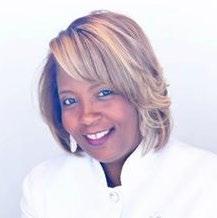
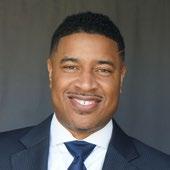

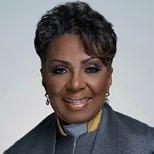


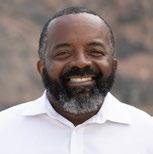
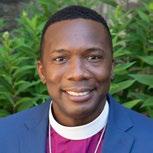

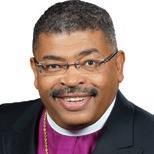

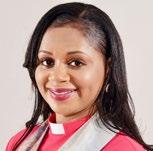
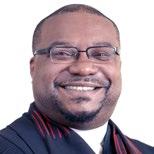
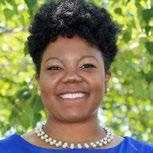
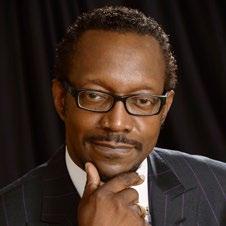
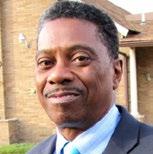


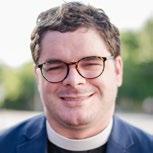


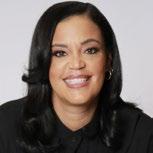
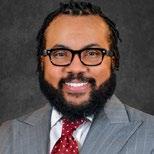

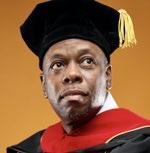



9
36th Annual Martin Luther King Jr. College of Ministers & Laity
David Ballard II Danielle L. Brown Timothy Careathers
David M. Copeland
Claudette A. Copeland
Cecil Andrew Duffie Darrell Antonio Drumwright
J. Louis Felton
Daniel G.P. Gutierrez Jessica Kendall Ingram Alicia Marie Johnson
Deon K. Johnson
Cory L. Jones
Elijah Bernard Jordan Robert Wright Lee, IV Marcus McCullough
Joel Mitchell Naomi A. Mitchell
Marshall Paul Hughes Mitchell
Maurice Joseph Nutt
Terri Ofori
LaVon Owens James Perkins
Stephen A. Green ’14
Jaron Stephen Green
Phillip L. Pointer Sr.
Dante R. Quick Sr. ’92
Cassius Rudolph
Floyd E. RoseAnthony Lamar Riley
Martin Luther King Jr. BOARD OF PREACHERS Inductees
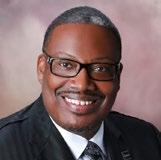
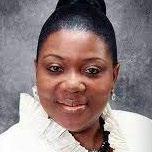

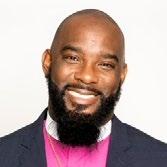
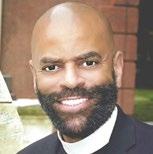
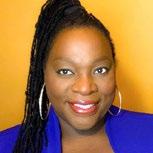
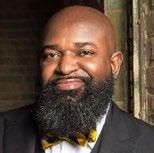


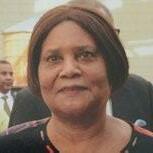

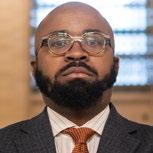

Martin Luther King Jr. BOARD OF SPONSORS Inductees
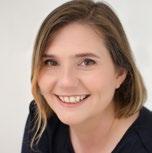
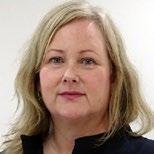


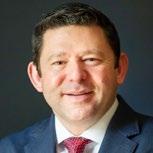
10 Morehouse College
Larry R. Sernovitz
Sylvia Cook
Tori Cooper
Candice Marie Benbow
Jodi Henderson
Allison Mathews
Priscilla Wilder
Andrew James Wilkes Gabriella Elizabeth Cudjoe Wilkes
Shantae Younger Marvin Clyde Zanders II ’87
Eugene James Se’Bree*
Edward L. Thomas
Reginald W. Williams Jr.
Darrell Tiller ’83
Tina Davis
John Thomas III
Shonda Jones
Martin Luther King Jr.

OF SCHOLARS Inductees


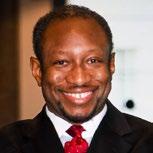




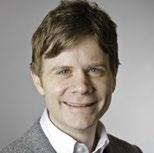
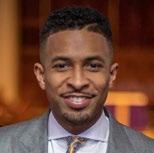


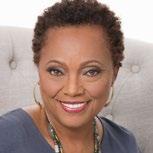
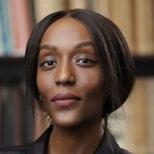
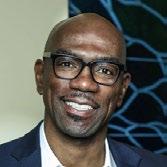
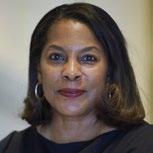

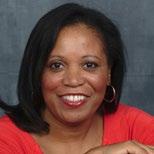
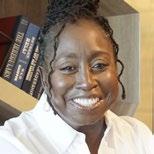



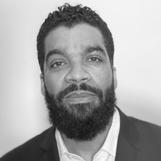

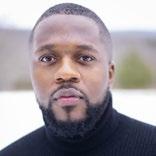

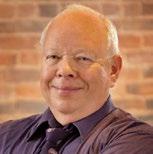


11
36th
Annual Martin Luther King Jr. College of
Ministers
& Laity
COLLEGIUM
Anthony B. Pinn
Beverly Guy-Sheftall
Matthew Wesley Williams
Sa’ed Atshan
Marlon Bailey Regina N. Bradley
Cornell William Brooks
Vernon Orville Burton Anthea Butler Vicki Crawford Brandon Thomas Crowley ’08 James Earl Davis ’83
Thema Bryant
Joseph Evans Jason Goulah
Ahmad Tyree Greene-Hayes
Jerrolyn Sue Eulinberg*
Crystal Anne deGregory
Gail N. KempRenee K. Harrison Axelle Karera
Joel Bernard Kemp
Asa Jerome Lee
Raquel S. Lettsome
T. Anansi Olajuawon
David Wall Rice
Velma E. Love
Michael Sawyer
Kenyatta R. Gilbert
MARTIN LUTHER KING JR. INTERNATIONAL CHAPEL CHAPEL ASSISTANTS
For 43 years, one of the signature initiatives of the Chapel has been The Martin Luther King Jr. International Chapel Assistants program. This student organization is open to all who seek to be stretched and strengthened in their faith, engaged in dialogue and action on issues of social justice and human rights, and oriented to the diversity of spiritual perspectives that comprise our Great “World House” concept for wholeness and healing. The Chapel Assistants
Program is open to students of all majors and career interests; however, a particular focus is given to those who are discerning
vocational callings in lay or ordained ministry and scholarship in the theological academy. The Chapel Assistants Program offers a host of rich experiences and opportunities including: Thurman
Thursdays each week at 5:30 p.m. in the Chapel Library; Sermon Talkback Sessions following each Sunday Vesper service; Monthly Sandy F. Ray Preaching Laboratory Sessions; participation in the Festival of Young Preachers; Interfaith Immersion Weekends and Pilgrimages; Ministry in the Arts; Seminary Swing Tours; and, summer internship placements.
Programs & Opportunities for Becoming Ambassadors of Global Peace by Embodying King’s World House Values
thurman thursdays
Thursdays | 5:30 p.m.
Join the chapel assistants each Thursday for dynamic theological table talks on issues ranging from politics to religion, ethical formation, vocational discernment, leadership development, interfaith engagement and church administration.
sunday VesPers Sundays | 5:30 p.m.
Each Sunday during the semester, join the chapel assistants, the King Chapel Gospel Choir (KCGC) and other Atlanta University Center students, staff and faculty for worship. Preachers include alumni clergy, special guests and select chapel assistants who have preached in the Sandy F. Ray Preaching Lab and or at the Academy of Preachers.
sandy f. r ay P reaching l ab
Are you looking to hone your preaching skills?
As “iron sharpens iron,” the Sandy F. Ray Preaching Lab offers chapel assistants the opportunity to deliver a sermon throughout the year for advice and constructive criticism from peers and seasoned homileticians.
festi Val of young Preachers and the academy of Preachers (Fall Semester Annually)
Each fall, chapel assistants and other aspiring preachers sign up and participate in the annual festival. Participants receive coaching and review of their sermon manuscripts in preparation for a select group to participate in the National Festival of Young Preachers sponsored by the Academy of Preachers.
m inistry in the a rts
The Chapel offers talented men and women the opportunity to lend their voices, talents and gifts in worship through spoken word, dance, vocal and instrumental presentations, drama and visual arts.
seminary sW ing
The Chapel Assistants program holds a longstanding tradition of preparing its members for theological education on the graduate level. This preparation is due in part to the annual Seminary Swing trip which offers chapel assistants the opportunity to experience student life at schools such as Harvard Divinity School, Yale Divinity School, Princeton Theological Seminary, Union Theological Seminary, University of Chicago, Boston University, Duke, and Vanderbilt.
summer i nternshiPs
The Chapel Assistants Summer Internship Program was established in 2013 as a pilot program of the “WorldHouse Initiative Realized.” The aim of the Chapel Assistants Summer Internship Program is to develop a formal structure for the historically informal and relational process of students identifying and securing summer ministerial internships in congregational contexts.
MARTIN LUTHER KING JR. SCHOLARS
Renard Darnell Allen
Gerard A. Ancrum
Ernest Andrew Brooks III
Gabriel Denard Cloud
Delman Lamont Coates
Jawanza Karriem Colvin
Brandon Thomas Crowley
Devon Jerome Crawford
Brian Russel Davis
Julian Michael DeShazier
Willie Dwayne Francois III
Tiant D’Andre Holloway
JaParis Xavier Key
Brandon Lamar Jackson
Kevin Rae Miles Johnson
Hassan Xavier Henderson-Lott
Lester Agyei McCorn
Tyrone Emmanuel McGowan
David Malcolm McGruder
Rashad Raymond Moore
Echol Lee Nix Jr.
Donavan Jamal Pinner
Winford Kennadean Rice
Joseph Carlos Robinson
Kevin Kitrell Ross
Samuel T. Ross-Lee
Willie J. Seals Jr.
Michael A. Walrond Jr.
Raphael Gamaliel Warnock
Tyler Micah Washington*
Beryl Monroe Whipple
Demetrius M.T. Ziegler
*2021-2022 Scholarship Recipient. 2022-2023 Recipient announced at the Howard Thurman Crown Forum, 11/17/22
12 Morehouse College
Worldhouse Interfailth Assembly
The Reverend Dr. Lawrence Edward Carter Sr., Presiding
Dean of the Chapel, Professor of Religion, and Director, Gandhi, King, Ikeda Institute for Cosmopolitan Virtue-Ethics and Reconciliation
[]
P relude “Eternal Life”
Olive Dungan
“Improvisation on Amazing Grace” arr. David F. Oliver
call to a ssembly and introductions
Dr. David Francis Oliver
The Reverend Dean Carter Sr.
islamic P rayer Imam Sulaimaan Hamed Resident Imam Atlanta Masjid of Al-Islam, Atlanta, GA
a buddhist P rayer Judge Richard Brown SOKA Gakkai International Director, South Zone Peace and Community Relations SGI: Atlanta, GA
a gift of music
“An Interfaith Medley” arr. Clariece Paulk
the occasion
Worldhouse a ssembly P remiere r ededication a nthem
P resentation
“See the Victory Before Us and Walk On” Words and Music by Dr. Uzee Brown Jr.’72
The Reverend James Lawson Jr. Gandhi, King, Ikeda Community Builder’s Prize Recipient Medallion, Prismatic Flame, Books and Citation
Pastor Clariece Paulk Minister of Worship and the Arts Spirit and Truth Sanctuary Decatur, GA
The Reverend Angela Harrington Rice Executive Director Interfaith Community Initiatives Atlanta, GA
Morehouse College Glee Club
The Reverend Dean Carter
introduction of sPeaker Dr. David Anthony Thomas 12th President, Morehouse College
a ddress
Portrait inductions into the international h all of honor
Postlude
The Reverend Al Sharpton President and Founder National Action Network
“And Then Shall the Trumpets Sound” Dean Carter
“Improvisation on Great Is Thy Faithfulness” arr. David F. Oliver
Dr. David Edward Morrow ’80 Professor, Chair of the Music Department, Director of the Glee Club
Dr. David Francis Oliver College Organist
David Oliver
1336th Annual Martin Luther King Jr. College of Ministers & Laity
The Reverend Al Sharpton Jr., D.D., Mult.
As one of the preeminent civil rights leaders of our time, Reverend Al Sharpton serves as the founder and president of the National Action Network (NAN), anchors Politics Nation on MSNBC, hosts the nationally syndicated radio shows Keepin’ It Real and the Hour of Power, holds weekly action rallies and speaks out on behalf of those who have been silenced and marginalized. Rooted in the spirit and tradition of the Rev. Dr. Martin Luther King Jr., NAN boasts more than 100 chapters across the country to promote a modern civil rights agenda that includes the fight for one standard of justice, decency, and equal opportunity for all.
In 2007, President Barack Obama addressed NAN’s annual convention and called Sharpton “the voice of the voiceless and a champion for the downtrodden.” He returned in both 2011 and 2014 to praise NAN for its ongoing work in the areas of critical concern such as voting rights and criminal justice reform. He emphasized in a keynote speech that “National Action Network is not the National Satisfaction Network; it’s the National Action Network.” Indeed, it is.
It all began when Sharpton was just a little boy and quickly discovered both his voice and his oratorical skills. He started his ministry when he was just four years old, preaching his first sermon at the Washington Temple Church of God in Christ. At the age of 13, he was appointed by Rev. Jesse Jackson and Rev. William Augustus Jones as youth director for the New York chapter of the Southern Christian Leadership Conference’s Operation Breadbasket, an organization founded by Dr. King in 1966. Operation Breadbasket served as the economic arm of SCLC and provided the curious and vivacious Sharpton with on-the-ground training in civil disobedience and direct action.
Sharpton had the unique opportunity to absorb a wealth of knowledge from Dr. King’s lieutenants: Rev. Jones, Rev. Ralph Abernathy, Hosea Williams and later Dr. Wyatt Tee Walker. He would go on to incorporate Dr. King’s teachings of nonviolent activism into his work and fight for justice. At the age of 16, he founded the National Youth Movement, Inc. and in 1991 officially launched National Action Network. Under Sharpton’s leadership and vision, NAN has emerged as one of the leading civil rights organizations in the country with headquarters in New York City and regional offices in Washington, D.C., Atlanta, Miami, Los Angeles, and Detroit.
A native New Yorker, Sharpton made it his mission to highlight the racism and bigotry embedded in the north—oftentimes hidden underneath a veneer of progress. In the summer of 1986, with the crack epidemic sweeping across New York City and indeed the nation, he started painting crack houses with red X’s to bring about awareness. Later that year, when 23-year-old Michael Griffith was chased by a white mob and killed when a passing car struck him in Howard Beach, Queens, Sharpton organized several protests calling for justice. Even as some yelled racial epithets as they marched, they held their heads high and pressed onward.
In 1989, a 16-year-old teenager named Yusuf Hawkins was attacked by a white mob wielding bats and was subsequently shot and killed in Bensonhurst, Brooklyn. Sharpton led the call for accountability and held several protests which were again met with a hostile response. At one such demonstration in 1991, he was stabbed in the chest and rushed to Coney Island Hospital. Despite the vicious incident, the preacher and activist showed mercy to his attacker, and even asked the judge for leniency at his sentencing. The entire incident galvanized Sharpton even more.
In 1992, he threw his hat in the ring for U.S. Senate. Though he didn’t win the Democratic nomination, he beat Liz Holtzman, the city comptroller, former DA and U.S. Representative. He garnered 15 percent of the overall vote. Sharpton would later run for mayor of New York City, and in 2004 he gave a rousing prolific speech at the Democratic National Convention as he ran for President of the United States.

Though he was never elected to office, Sharpton cracked the proverbial ceiling so that others could one day shatter it. He showed young people everywhere that a kid from Brooklyn could aim for whatever they wanted, no matter how many obstacles were placed before them. He served as an example of someone who not only spoke of progress, but hit the streets and made it happen, while always maintaining his focus on creating a more just and equal society.
For decades, Sharpton has turned the power of protest into a mechanism by which to garner reform. In 1997, when Abner Louima was viciously brutalized by NYPD officers, he organized rallies, marches and pressers, and helped lead the fight for a conviction. In 1998, when four young Black and Latino basketball players were shot by New Jersey state troopers, Sharpton led
14 Morehouse College
speaker biography
protests, even shutting down parts of the New Jersey turnpike. The focus highlighted how pervasive racial profiling was in traffic stops, and resulted in statewide changes to policing practices.
When 23-year-old Amadou Diallo was shot 41 times in a hail of bullets by plainclothes officers as he stood in the vestibule of his own home in the Bronx in 1999, Sharpton once again called for justice, led demonstrations, and stood alongside the family during the difficult period. Six years later, when plainclothes officers fired 50 shots and killed Sean Bell hours before his wedding, he did the same. When the cops charged in Bell’s death were acquitted, Sharpton led massive protests around the city which shut down bridges and tunnels.
Through the years, the civil rights champion has remained consistent in pushing for police reform and accountability. In 2014, Eric Garner died after officers in Staten Island placed him in a banned chokehold. Sharpton stood with Garner’s mother, organized rallies, and called for justice – even testifying years later in front of the House Judiciary Committee demanding federal regulation and changes to policing. Whether it is organizing a silent march against stop-and-frisk policies in New York City or delivering eulogies for victims of police brutality, Sharpton’s commitment to fighting on behalf of others has never wavered.
In 2020, after a global pandemic hit the nation and devastated Black and Brown communities especially hard, NAN increased food drives, served meals, and provided support during the tumultuous time. Sadly, police misconduct never ceased—even as families grappled with an unknown virus. That May, 46-yearold George Floyd was killed after Minneapolis police officer Derek Chauvin placed his knee on Floyd’s neck for over nine minutes as he cried out in agony. The incident was caught on cell phone video for the world to see. Sharpton delivered a powerful eulogy for Floyd, both humanizing him and demanding accountability at the same time. Chauvin was eventually convicted of murder and the other officers at the scene were convicted of violating Floyd’s civil rights. It was a rare moment when law enforcement was truly held accountable for their actions, and it was the culmination of decades of Sharpton’s activism.
NAN and Sharpton have consistently fought for justice even when the perpetrators weren’t police officers. In 2012, 17-year-old Trayvon Martin was killed by a self-proclaimed neighborhood watchman as he walked with an iced tea and a bag of Skittles. Sharpton drew attention to the case, led rallies, and has stood with Trayvon’s mother and family through the years as they have grappled with such a horrific, unjust loss. When 25-year-old Ahmaud Arbery was killed while out jogging by white vigilantes in 2020, it would take law enforcement 10 weeks to make the first arrests. Sharpton once again stood with the family,
demanded justice, attended the trial, and helped raise awareness about the case. In November 2021, all three white men were found guilty of murder charges, and in February of 2022, they were found guilty in a federal hate crimes trial. Justice was finally served.
Throughout the years, Sharpton has utilized his gifts to raise awareness for injustice wherever it has occurred. In fact, he has been arrested over 30 times for acts of civil disobedience, including spending 90 days in jail for protesting the bombing of the island of Vieques. He also spent an additional stint of 45 days in jail and served another 10 days for other peaceful demonstrations. He has, in short, paid real dues.
Vanity Fair published an exclusive profile piece in 2014 in which they referred to Sharpton as “arguably the country’s most influential civil rights leader.” And they were correct. Year after year, he and NAN hold a national convention at the Sheraton Times Square Hotel where thousands attend, including dignitaries, elected officials, clergy, and activists from around the country, as well as from around the world. Every August, he commemorates Dr. King’s historic March on Washington, and as recently as 2020, over 200,000 people attended demanding national police reform.
Sharpton is the author of several books, including “Go and Tell Pharaoh,” “Al on America,” “The Rejected Stone,” “Rise Up,” and most recently, “Righteous Troublemakers.” He has served as a guest lecturer at Tennessee State University, and has received honorary doctorate degrees from Medgar Evers College, Fisk University, Bethune-Cookman University, Virginia Union University, and Voorhees College, among others.
In 2000, Coretta Scott King participated in a NAN-organized “Redeem the Dream” march in Washington, D.C. She praised Sharpton for continuing the steadfast work of her late husband. It was the highest honor he could receive. Thirteen years later, nearly a quarter of a million people attended the 50th anniversary of Dr. King’s 1963 March on Washington. It was a defining moment.
Today, Sharpton and NAN continue advocating on behalf of the powerless and keep up the fight for voting rights, pay equity, police reform, reproductive rights, fair housing, health care, LGBTQ rights, environmental justice, quality education, and so much more. They empower youth leaders around the country to carry the torch of freedom and justice forward. Sharpton speaks on the world stage, addressing racial disparity in a host of nations, and reminding everyone that nobody is truly free until we are all free.
Sharpton resides in New York City. He is the proud father of two daughters, Dominique and Ashley, and the grandfather of Marcus Al Sharpton Bright.
1536th Annual Martin Luther King Jr. College of Ministers & Laity
Gandhi-King-Ikeda Community 2022 BUILDER’S PRIZE RECIPIENT
The Reverend James M. Lawson Jr.
As a minister who trained many activists in nonviolent resistance, James Lawson made a critical contribution to the civil rights movement. In his 1968 speech, “I’ve Been to the Mountaintop,” Martin Luther King spoke of Lawson as one of the “noble men” who had influenced the black freedom struggle: “He’s been going to jail for struggling; he’s been kicked out of Vanderbilt University for this struggling; but he’s still going on, fighting for the rights of his people” (King, “I’ve Been,” 214).

The son of Philane May Cover and James Morris Lawson Sr., Lawson was born in Uniontown, Pennsylvania, in 1928. He earned his Bachelor of Arts from Baldwin-Wallace College in 1951 and his Bachelor of Sacred Theology from Boston University in 1960. A draft resister, Lawson was imprisoned in 1951 for refusing to register with the armed forces. Following his parole from prison in 1952, he traveled to India and performed missionary work with the Methodist Church. While in India, he deepened his study of Gandhi’s use of nonviolence to achieve social and political change. In 1956, Lawson returned to the United States and resumed his studies at Oberlin College’s School of Theology from 1956 to 1957, and Vanderbilt University from 1958 to 1960.
When Lawson and King met in 1957, King urged Lawson to move to the South and begin teaching nonviolence on a large scale. Later that year, Lawson transferred to Vanderbilt University in Nashville, Tennessee, and organized workshops on nonviolence for community members and students at Vanderbilt and the city’s four black colleges. These activists, who included Diane Nash, Marion Barry, John Lewis, Bernard Lafayette, and James Bevel, planned nonviolent demonstrations in Nashville, conducting test sit-ins in late 1959. In February 1960, following lunch counter sit-ins initiated by students at a Woolworth’s store in
Greensboro, North Carolina, Lawson and several local activists launched a similar protest in Nashville’s downtown stores. More than 150 students were arrested before city leaders agreed to desegregate some lunch counters. The discipline of the Nashville students became a model for sit-ins in other southern cities. In March 1960 Lawson was expelled from Vanderbilt because of his involvement with Nashville’s desegregation movement.
Lawson and the Nashville student leaders were influential in the founding conference of the Student Nonviolent Coordinating Committee (SNCC), held April 1960. Their commitment to nonviolence and the Christian ideal of what Lawson called “the redemptive community” helped to shape SNCC’s early direction (Lawson, 17 April 1960). Lawson co-authored the statement of purpose adopted by the conference, which emphasized the religious and philosophical foundations of nonviolent direct action.
Lawson was involved with the Fellowship of Reconciliation from 1957 to 1969, SNCC from 1960 to 1964, and the Southern Christian Leadership Conference (SCLC) from 1960 to 1967. For each organization, he led workshops on nonviolent methods of protest, often in preparation for major campaigns. He also participated in the third wave of the 1961 Freedom Rides. In 1968, at Lawson’s request, King traveled to Memphis, Tennessee, to draw attention to the plight of striking sanitation workers in the city. It was during this campaign that King was assassinated on 4 April 1968.
Lawson continued to work with various civil rights groups following King’s assassination. In 1973, he became a board member of SCLC and served as president of the Los Angeles chapter from 1979 to 1993. He was also the pastor of Holman United Methodist Church in Los Angeles from 1974 to 1999.
16 Morehouse College
Mohandas Karamchand “Mahatma” Gandhi
Gandhi has been chosen by the people of India, England, and by countless citizens throughout the globe as the greatest world leader of the past 1,000 years. Through the use of nonviolence, fasting, and religious tolerance, he developed and tested the means for ending an era of colonial domination and imperialism. He elevated the love ethic of Jesus to the level of international diplomacy. Using his insightful and thorough reading of John Ruskin, Leo Tolstoy, Henry David Thoreau, Ralph Waldo Emerson, the Bhagavad-Gita, the Bible, the Koran, and the philosophies and scriptures of other world religions, he instituted a form of universal worship and promoted a love for truth, regardless of its source. This reading further encouraged him to remain by pain or pleasure, victory or defeat, and to work without promise of success or fear of failure. He spent a total of 10 years imprisoned by the British, a period that witnessed the proliferation of his writings, which now fill 100 volumes, each over 500 pages in length.
Gandhi’s civil disobedience and nonviolent demonstrations in South Africa and India won greater freedom and ultimately, independence for 400 million Indians after three centuries of British rule. It also inspired the leadership of Martin Luther King Jr., Nelson Mandela, Desmond Tutu, Albert Luthuli, Lech Walesa, Vaclav Havel, Mother Teresa, Aung San Suu Kyi, Mairead Corrigan-Maguire, the Dalai Lama, and Thich Nhat Hanh.
It is because of his selfless devotion to service and scholarship for the dispossessed—dressing like them, speaking their language, and living among them—that billions today continue to grant Gandhi the title “Mahatma “ and to regard him as a Christian, Judaic, Buddhist, Islamic, and Hindu saint.

The Mahatma was the catalyst, if not the initiator, of five of the major revolutions of the twentieth century: the revolutions against colonialism, racism, violence, and sexism, and for ecology. According to Albert Einstein, “Gandhi organized the people of India into a mass movement on a scale without precedent or parallel. He was the greatest political genius in human history. Generations to come, it may be, will scarce believe that such a one as this ever in flesh and blood walked upon the earth.”
Gandhi’s life and achievements also caused Martin Luther King Jr. to say, “Gandhi was inevitable. If humanity is to progress, Gandhi is inescapable. He lived, thought, and acted, inspired by the vision of humanity evolving toward a world of peace and harmony. We may ignore him at our own risk .... He is the Christian of the century.”
The world does not realize, however, that the Mahatma was not always nonviolent. Gandhi acknowledged many times that his wife of 62 years, Kasturbai Kapadia Gandhi, in her natural unassuming Hindu manner, taught him the art, practice, and science of nonviolence. Her temperament caused Gandhi to publicly declare that he believed women to have a natural predisposition to nonviolent leadership. While Gandhi was in prison, his wife spoke on his behalf and fasted on the same strict vegetarian diet he used. Gandhi himself acknowledged and documented Kasturbai’s courage and bravery to be greater than his own.
Officials of the government of India have informed us that nowhere outside of India have Mahatma and Kasturbai, whose name means “the great mother,” been honored together as perhaps the most influential family of the 20th century. This joint recognition is long overdue and greatly needed, not only to recognize the role of women but also to complete the humanity of all of us.
Six related Morehouse personalities have Gandhi connections which have facilitated the development of this nation. These six persons are Mordecai Wyatt Johnson, Howard Washington Thurman, Benjamin Elijah Mays, Samuel Woodrow Williams, Martin Luther King Jr., Floyd McKissick, and Charles Radford Lawrence. All of these gentlemen must be credited with midwifing Gandhian nonviolence into the American body politic. Martin Luther King Jr. claimed Gandhi, Johnson, Thurman, Mays, Williams, and Lawrence as his mentors. Floyd McKissick, who attended Morehouse, succeeded James Farmer as the head of the Congress of Racial Equality, which was founded on the principles of Gandhian nonviolence. The awarding of honorary degrees to the Gandhis symbolized Morehouse’s continued recognition of the transforming role of nonviolence in the sound construction and healthy maintenance of our ever-emerging world house. The Mahatma is indeed the greatest world leader of the 20th century.
1736th Annual Martin Luther King Jr. College of Ministers & Laity
(1869-1948)
Martin Luther King Jr.
The ultimate measure of a man is not where he stands in moments of comfort and convenience,” said Dr. Martin Luther King Jr., “but where he stands at times of challenge and controversy.” Throughout the 20th century, no American leader demonstrated more moral courage and spiritual leadership in the face of extreme adversity than Dr. Martin Luther King Jr. As a modern day prophet and civil rights leader, King worked assiduously to “redeem the soul of America.” His pronounced opposition to racism, militarism, and materialism exceeded the ideals posited by any private citizen or elected public official in America during the last century.
King was a man of ideas and action. He engaged in civil disobedience, and he inspired protest movements for civil rights and human rights. His unwavering faith in the power of love, and his philosophy of nonviolence, skillfully and brilliantly represented the hopes and dreams of the poor and dispossessed throughout the world. Dr. King’s leadership, unquestionably, reshaped the racial landscape in the American South and, indeed, in the nation; moreover, his vision of equality encouraged the development of political and economic justice in Asia, Europe, Latin America and the Caribbean, and South Africa. His sincere heartfelt compassion
for people transcended race and class and even revised the paradigm of equality by embracing the beloved community.
Dr. King’s commitment to peace and justice received widespread acclaim. Time magazine recognized him as “Man of the Year” in 1963, he received the Nobel Peace Prize in 1964, and he became the only non-elected American to be recognized with a federal holiday in 1983. In 1998, Congress authorized the Washington, D.C. Martin Luther King Jr. National Memorial Foundation to establish a memorial in his honor. This memorial is located on the Tidal Basin near the Franklin D. Roosevelt Memorial and between the Jefferson and Lincoln memorials.
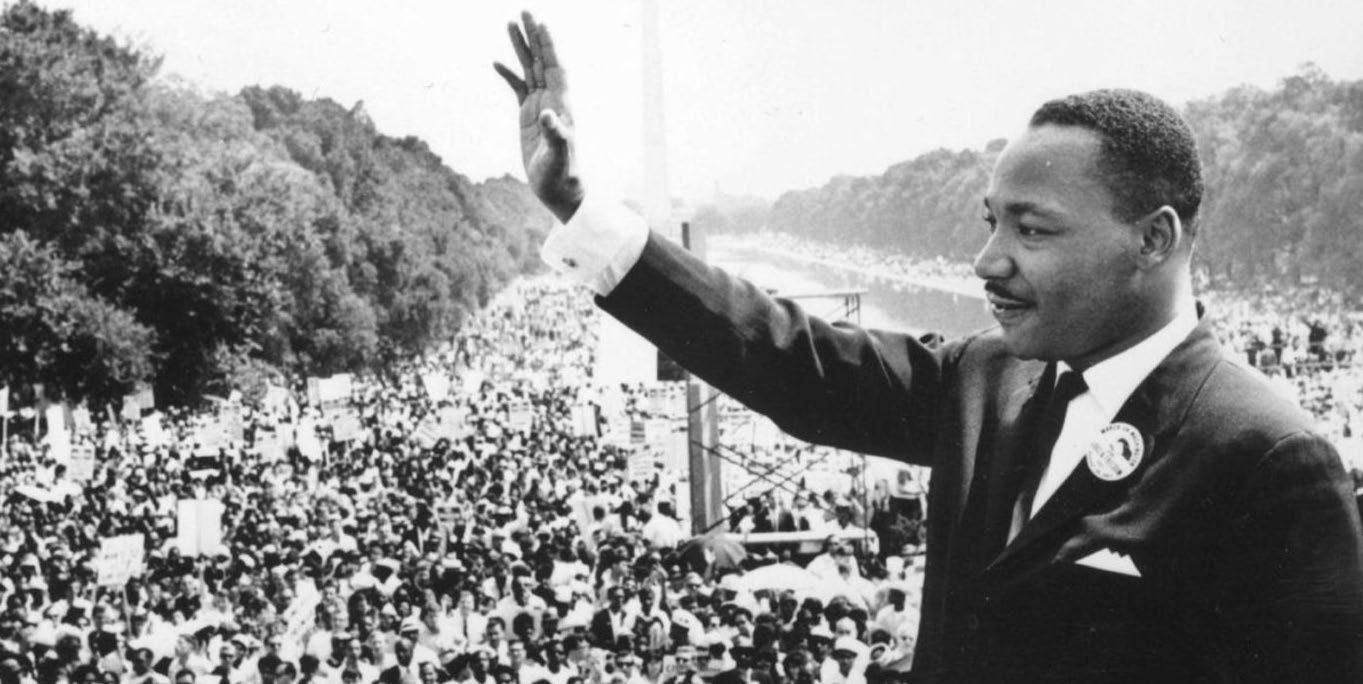
Yet, in the new millennium, it is evident that Dr. King’s most enduring legacy can be summed up in his own words: he tried to feed the hungry and he tried to clothe the naked. He was a drum major for justice, a drum major for peace, and a drum major for righteousness. He gave his life loving his enemies while serving humanity. Clearly, Dr. Martin Luther King Jr. is the most significant American leader of the 20th century. His tireless leadership, his unselfish spirit, and his undying influence on the maturation of American freedom and democracy will forever impact the lives of unborn generations throughout the world.

18 Morehouse College “
(1929-1968)
Daisaku Ikeda (1928-Present)
D aisaku Ikeda is a peacebuilder, Buddhist philosopher, educator, author, and poet. He was president of the Soka Gakkai lay Buddhist organization in Japan from 1960–79 and is the founding president of the Soka Gakkai International (SGI), one of the world’s largest and most diverse community-based Buddhist associations, promoting a philosophy of empowerment and social engagement for peace. He is also the founder of the Soka Schools system and several international institutions promoting peace, culture, and education.
Ikeda was born in Tokyo, Japan, on January 2, 1928, the fifth of eight children, to a family of seaweed farmers. Growing up during World War II, he endured firsthand the suffering and devastation of war, including the death of his eldest brother who was killed in action in Burma (present-day Myanmar). This experience as a teenager gave birth to a lifelong passion to work for peace and root out the fundamental causes of human conflict.
In 1947, at the age of 19, he encountered Buddhism through a meeting with Josei Toda (1900–58), who was an educator, pacifist, and leader of the Soka Gakkai. Toda had been imprisoned during the war with his mentor Tsunesaburo Makiguchi (1871–1944). Both held firm to their religious convictions in the face of oppression by the military authorities who imposed State Shinto ideology on the population as a means of sanctifying their war of aggression, and Makiguchi had died in prison. Toda’s resolve to stand up to the militarist regime impressed Ikeda, who would later write, “The words of a person who had suffered imprisonment for his convictions carried a special weight. I felt intuitively that I could trust him.” Although Ikeda’s association with Toda lasted only 10 years, he describes his mentorship by Toda as the defining experience of his life and the source of everything he has done and become.
In May 1960, two years after Toda’s death, Ikeda, then 32, succeeded him as president of the Soka Gakkai. In 1975, he became the founding president of the SGI, now a global network linking over 12 million members in some 190 countries and territories. Ikeda writes, “Everything depends on the people. That is why it is vital to forge a growing network that brings people of goodwill and conscience together.”

Ikeda has also founded a number of independent, nonprofit research institutes that promote peace through cross-cultural, interdisciplinary collaboration: the Boston Research Center for the 21st Century (renamed the Ikeda Center for Peace, Learning, and Dialogue in 2009), the Toda Institute for Global Peace and Policy Research, and the Institute of Oriental Philosophy. The Min-On Concert Association and the Tokyo Fuji Art Museum promote
mutual understanding and friendship between different cultures through the arts.
It was in the 1960s that Ikeda began also to work toward the founding of a school system based on first Soka Gakkai President Makiguchi’s educational theories. This was a dream that both Makiguchi and Toda had cherished. In 1968, Ikeda realized the vision with the founding of Tokyo Junior and Senior High Schools. The schools were not simply a monument to his predecessors. Their establishment was the first major step in an ongoing endeavor to develop a humanistic educational system, one that Ikeda has described as the culminating undertaking of his life. The schools’ establishment was followed in 1971 by the establishment of Soka University, and in subsequent years by a string of other educational institutions around Japan and abroad. These schools are open to all students and have no religious instruction. Ikeda writes: “My determination was to build these schools up into centers of learning consecrated to the goal of peace, working with educators throughout the world.”
Ikeda is a strong proponent of dialogue as the foundation of peace. Since the 1970s, he has pursued dialogue with individuals from diverse backgrounds—prominent figures from around the world in the humanities, politics, faith traditions, culture, education and various academic fields—in order to discover common ground and identify ways of tackling the complex problems facing humanity. Over 70 of these have been published in book form. Dialogue and the promotion of cultural exchange have also been at the basis of his efforts to build trust and foster friendship in contexts of historical division and conflict.
The central tenet of Ikeda’s thought, grounded in Buddhist humanism, is the fundamental dignity of life, a value he sees as the key to lasting peace and human happiness. In his view, global peace relies ultimately on a self-directed transformation within the life of the individual, rather than on societal or structural reforms alone.
This conviction is expressed most succinctly in the preface of The Human Revolution, Ikeda’s novelization of the Soka Gakkai’s history and ideals: “A great inner revolution in just a single individual will help achieve a change in the destiny of a nation and, further, will enable a change in the destiny of all humankind.”
Ikeda is a prolific writer who has published more than 240 works, ranging from commentaries on Buddhism to biographical essays, poetry and children’s stories. He has two sons, Hiromasa and Takahiro, and lives with his wife, Kaneko, in Tokyo.
36th Annual Martin Luther King Jr. College of Ministers & Laity
Objectives of the Gandhi, King, Ikeda Institute for Cosmopolitan Virtue-Ethics and Reconciliation


Mohandas Karamchand Gandhi has bequeathed us a roadmap that has been tested and proven workable within and between nation states. Our American Moses, Martin Luther King Jr., has employed the roadmap in a fashion that further confirms the reliability of the Gandhian bequest to the world. The Gandhian nonviolent method was user friendly in the South African crisis effectively addressed by Nelson Mandela’s government to end the more than fifty years of apartheid oppression. Daisaku Ikeda has effectively used Gandhian and Kingian nonviolent methods to democratize and internationalize the imperialistic military state of Japan since 1960. The most convincing sanctions for the effective use of nonviolent approaches to conflict resolution are seen in the diplomacy of the United Nations, and the state departments of all nations. The nonviolent diplomatic philosophies have been demonstrated by many world leaders such as Mother Teresa, Jesse Jackson, Pope John Paul II, Jimmy Carter, Mary McLeod Bethune, Baclav Havel, Johnnie Coleman, Marian Wright Edelman, Chief Albert Luthuli, Desmond Tutu, and Han Park.
1TO SERVE as a conference and multicultural institute, a place to organize international and community based forums within and sponsored by the Martin Luther King Ir. International Chapel, and to discuss a variety of perspectives affecting our common humanity. These could include such issues as community disintegration,
denominationalism, enslavement, environmental injustice, ethnic cleansing, hate crimes, healing, inadequate schools, poverty, privileged markets, racism, school violence, the unity of science and religion, sexism, societal fragmentation, spirituality, terrorism, unemployment, unequal access to higher education, war, the prison industrial complex, and xenophobia. A large variety of groups crossing all cultural, economical, educational, gender, lifestyle, national, racial, and religious boundaries will discover new bases for the common ground between us. This Institute will inspire a more profound sense of

domestic and international civility and humanity, helping us to appreciate that we are geographically one and are becoming spiritually one. Such diplomacy is reachable as a noble end of reconciling diversity toward which we should strive.
2TO MAKE KNOWN the life, work, and philosophies of Martin Luther King Jr., Howard Thurman, Benjamin Mays, Floyd McKissick, Samuel Woodrow Williams, Mordecai Wyatt Johnson, George Kelsey, William Jefferson White, Charles T. Walker,

20 Morehouse College
[]
Charles Radford Lawrence, James Madison Nabrit, and with Mohandas K. Gandhi as the greatest world leader of the Twentieth Century, and Daisaku Ikeda as the contemporary embodiment of the philosophy of nonviolence institutionalized internationally.
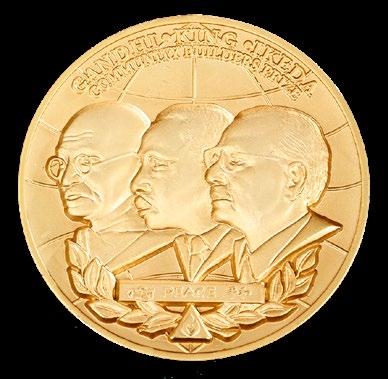
3TO HONOR Kasturbai Gandhi for her singular, unsung contribution of role modeling and tutoring her husband in the practice of nonviolence. This will inaugurate a tradition of honoring women whom The Mahatma felt had a natural predisposition to providing nonviolent leadership.
4TO EXPLORE possibilities of exchanging visiting scholars and students from India and other countries who are experts on and interested in the application of philosophies of nonviolence internationally.
Services Committee, the Highlander Institute, the George Mason Institute for Conflict Resolution, the Southern Poverty Law Institute, Oxfam America, the Synthesis Dialogues, Council for the Parliament of World Religions, Association for Global New Thought, the Appeal of the Nobel Peace Prize Laureates Foundation, the Knotted Gun Project, and the Indian American Culture Association of Atlanta, and the Tikkun Community.
6
TO BE A CONDUIT for partnerships and coordinated efforts of domestic and international organizations dedicated to reconciliation work. Some of these partners will be the Carter Center, the Peace Corps, the Fellowship of Reconciliation, Soka Gakki International (Buddhist), the Atlanta Masjid of Al Islam, Science and Spirit Magazine, Holistic Health Magazine, the Morehouse Andrew Young Center for Global Leadership, the India Council of Cultural Relations (New Delhi), the Gandhi Hamer King Center (Denver), UNESCO, Operations Crossroads Africa, the American Friends
5
TO ASSIST in the fulfillment of Resolution GA/9500, unanimously adopted by the 55th plenary meeting of the United Nations General Assembly, November 10, 1998. The resolution called for the International Decade for a Culture of Peace and Nonviolence for the Children of the World (2001-2010), with the year 2000 being a year of education. This includes the inauguration of “A Season of Nonviolence” annually, (January 30 - April 4), a period between the assassination dates of Gandhi and King, respectively.
7TO OFFER consultancy and guidance to institutions and individuals engaged in the study and research of nonviolence for problem solving. We would actively promote the introduction of foundation courses on Gandhian, Kingian, and lkedian philosophies in educational institutions, and facilitate a shift in the attitude of the print and electronic media towards rooting out the culture of violence by generative and creative kinds of nonviolence.
8
TO UNDERTAKE the production and distribution of literature on nonviolence, peace, Gandhi-King-Ikeda studies, comparative religion, tolerance, appreciation of differences, and diversity-maturity.
9
TO DEVELOP a network of individuals and institutions engaged in the task of peace and justice education, conflict transformation, peace, and justice promotion activities.
10
TO DEVISE suitable formats and programs to bring the arts, particularly performing arts/ dramaturge-in-residence, in peace and justice promotion. We will also seek to develop a comprehensive web page on Mahatma Gandhi, Martin Luther King Jr., and Daisaku Ikeda.
We propose to utilize The Gandhi-KingIkeda Institute for Global Ethics and Reconciliation as an institutionalized forum linking practice, knowledge, and service. Our goal is to help develop thoughtful servant-scholar leaders who think and act differently about problems of oppression and insensitivity which tend to be examined within narrow contexts with little attention paid to their complex and often paradoxical generalities around the world. This program emphasis would further assist the dean of the Chapel and the other College offices in the theological and intellectual exploration of vocation with the future ordained and lay leadership.
2136th Annual Martin Luther King Jr. College of Ministers & Laity
Prince
Gandhi, King, Ikeda Community BUILDER’S PRIZE RECIPIENTS
Former
Former President,
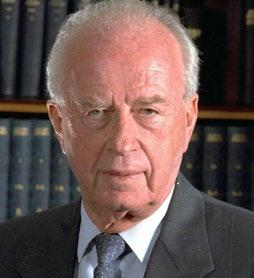



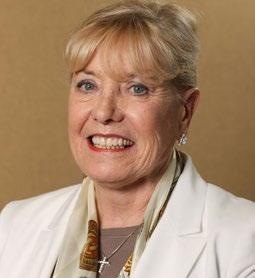

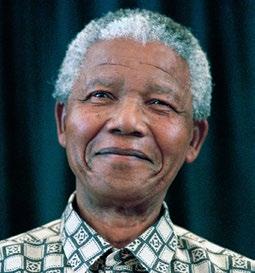

Mr. John Hume


Architect
Archbishop Desmond Tutu

Anglican
Mrs. Coretta Scott King

First
Former
22 Morehouse College
2001 HRH
El
Hassan bin Talal
Prince of Jordan; President, The Club of Rome 2001
Mr. Nelson R.
Mandela
President, Republic of South Africa; Former President, African National Congress; Co-recipient, Nobel Peace Prize, 1993 2001
Mr. Mikhail S. Gorbachev
Former President, the Soviet Union; President, The Gorbachev Foundation; President, Green Cross International; Recipient, Nobel Peace Prize, 1990 2002
Dr. Michael Nobel
Chairman, Nobel Family Society; Chairman, The Nonviolence Project 2003
Ms. Betty Williams
Peace Worker, Founder and President, World Centers of Compassion for Children; Co-recipient, Nobel Peace Prize, 1977 2004
Mr. F. W.
De
Klerk
Former President, Republic of South Africa; Co-recipient, Nobel Peace Prize, 1993 2006
Archbishop Emeritus of Cape Town; Recipient, Nobel Peace Prize, 1984 2006
Lady of the Civil Rights Movement; Founder, The Martin Luther King Center for Nonviolent Social Change 2009
Mr. Yitzhak Rabin (posthumous)
Prime Minister, State of lsrael; Architect, Oslo Accords; Co-recipient, Nobel Peace Prize, 1994 2004
Chief Albert John Luthuli (posthumous)
African National Congress; Recipient, Nobel Peace Prize, 1960 2005
Rabbi Michael Lerner
Editor, Tikkun Magazine; Founder & National Co-Chair, The Tikkun Community; Rabbi Beyt Tikkun 2005
of Northern Ireland Peace Settlement; Founder, Social Democratic and Labour Party; Co-recipient, Nobel Peace Prize, 1994 []
Dr. Johan Galtung
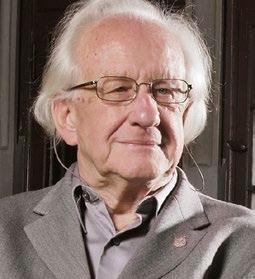
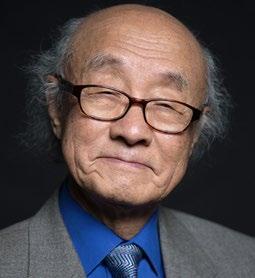
Holiness
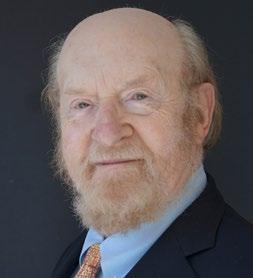

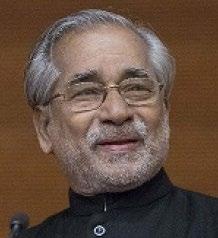
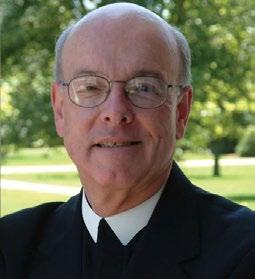


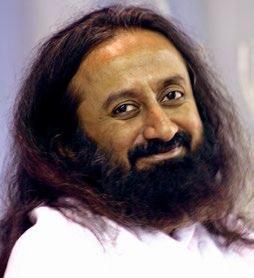

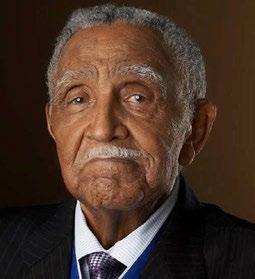
23 2010 Dr.
Han
Shik Park University Professor oflnternational Affairs; Director, Center for the Study of Global Issues; (GLOBIS) University of Georgia; Architect of U.S.-North Korean Relations 2011 Co-recipient The Rev. Dr.
Joseph
E. Lowery Dean of the American Civil Rights Movement; Co-founder and President Emeritus, Southern Christian Leadership Conference (SCLC) 2011 Co-recipient
Mrs. Evelyn Gibson Lowery
Pioneer, American Civil Rights Movement; Founder, SCLC/W.O.M.E.N., Inc. (Women’s Organizational Movement for Equality Now) 2013 His
Sri Sri
Ravi Shankar
Founder, Art of Living Foundation, International Association for Human Values 2014 Dr.
Karen Armstrong
Founder, Charter for Compassion; Leading Historian of World Religion; Thinker and Bestselling Author 2015 Amb.
Anwarul K. Chowdhury
Former Under-Secretary-General of the U.N. and Ambassador of Bangladesh to UN; Founder of the Global Movement for the Culture of Peace 2016
Father of International Peace and Conflict Studies; Founder, Galtung-lnstitute for Peace Theory and Peace Practice; Founder, TRANSCEND International Gandhi, King, Ikeda Community BUILDER’S PRIZE RECIPIENTS 2017
Brother James Gaffney, FSC
President Emeritus, Lewis University; Honorary Founder, Lewis University 2018 Dr. Neelakanta Radhakrishnan Chair, Gandhi Peace Mission 2019 Dr. Kai Frithjof Brand-Jacobsen Director, Department of Peace Operations (DPO) - PATRIR 2021 Dr. Robert Cummings Neville Professor Emeritus of Philosophy, Religion, and Theology , Dean, 1988-2003, Boston University 36th Annual Martin Luther King Jr. College of Ministers & Laity []
Dear Old Morehouse
Dear old Morehouse, dear old Morehouse, We have pledged our lives to thee; And we’ll ever, yea forever, Give ourselves in loyalty.
True forever, true forever, To old Morehouse may we be; So to bind each son the other, Into ties more brotherly.

Holy Spirit, Holy Spirit, Make us steadfast, honest, true, To old Morehouse, and her ideals, And in all things that we do.
J.O.B. Mosley ’29
ACKNOWLEDGMENTS AND INSTITUTIONAL PARTNERS
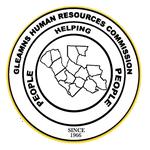




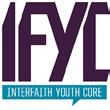








24 Morehouse College
Dr. Benjamin E. Mays Historic Preservation Site

2536th Annual Martin Luther King Jr. College of Ministers & Laity Timeline Morehouse College Martin Luther King Jr. International Chapel chapel mission and programming MISSION To develop transforming nonviolent ambassadors of peace to reveal and co-create the “Beloved World Economic Community” as a reflection or mirror of the social justice of Jesus. IMPACT 43 years of growth and expansion; 1500+ program participants 1979 Chapel Assistants 2000 Gandhi-King-Ikeda Institute, Prize and Award 2009 Program for Theological Exploration of Vocation 2014 College of Pastoral Leadership 2017 Cultivating Moral Cosmopolitan Practitioners 1984 College of Ministers and Laity 2000 Howard Thurman Trust and Award 2009 Rabin-King Initiative 2015 WorldHouse Academy for High School Youth 2018 Samuel DuBois Cook Dialogues 2020 Covenant 2022 Rededication of the Chapel []
SCHEDULE OF EVENTS
36th Annual Martin Luther King Jr. College of Ministers & Laity
THEME
“Saving Democracy While Thriving in the Wake of Cosmic Trauma”
WEDNESDAY, OCTOBER 12, 2022
9 A.M. – 10:15 A.M. WELCOME & KEYNOTE ADDRESS
KEYNOTE SPEAKER
Thema Bryant-Davis, Ph.D. Professor of Psychology Pepperdine University
President-Elect of American Psychological Association, Los Angeles, CA
Thriving in the Wake of Trauma: A Multicultural Guide
10:30 A.M. – 12:30 P.M. SESSION ONE
Black Sexual Trauma, Spirituality, and the HIV/AIDS Epidemic in the Black Community
MODERATOR
Brandon Thomas Crowley ’08, Ph.D. Lecturer In Ministry Studies Harvard University Divinity School, Cambridge, MA Queering Congregations
PANELISTS
Candice Marie Benbow, M.Div., M.S.W.
Author, Multi-Genre Theologian, Writer, Atlanta, GA
Red Lip Theology
Don Abram, M.Div. Executive Director of Pride in the Pews, Chicago, IL
The Black Church & Sexuality
Monique Moultrie, Ph.D.
Associate Professor of Religious Studies Georgia State University, Atlanta, GA
Religious Media and Black Women’s Sexuality
12:30 P.M. – 1:30 P.M. LUNCH IN CHIVERS DINING ROOM (ON CAMPUS)
26 Morehouse College
1:30 P.M. – 3:30 P.M.
SESSION TWO
Black Men’s Health, Mental Wellness, and Transformational Healing
MODERATOR
Derrick Bryan ’04, Ph.D.
Associate Professor of Sociology and Associate Director of the Black Male Research Institute Morehouse College, Atlanta, GA
Black Manhood and HBCUs
PANELISTS
David Wall Rice ’95, Ph.D.
Professor of Psychology and Principal Investigator, the Identity, Art and Democracy Lab Morehouse College, Atlanta, GA
Black Lives, Balance and the Psychology of Self Stories
Keyon Payton ’01, D.Min. Candidate
Senior Pastor, New Bethel Missionary Baptist Church, Pontiac, MI
Racialized Policing and Justice Reform
Gregory Bolden, Ph.D. Program Director, Center for Black Health and Equity, Durham, NC Black Health and the Ban on Menthol E-Cigarettes
7 P.M. – 8:30 P.M.
SESSION THREE
Journal of Modern Slavery Book Launch
MODERATOR
Adrienne Jones, J.D., Ph.D.
Associate Professor of Political Science, Morehouse College, Atlanta, GA Voting Rights Act of 1965
CONTRIBUTORS
Orville Vernon Burton, Ph.D.
Judge Matthew J. Perry Jr. Distinguished Professor of History, Clemson University, Clemson, SC
“American Slavery Historiography”
Joel B. Kemp, J.D., Ph.D.
Assistant Professor of Hebrew Bible, Emory University Candler School of Theology, Atlanta, GA
“Racializing Cain, Demonizing Blackness the Legalizing Discrimination”
Brandon Thomas Crowley ’08, Ph.D.
Lecturer In Ministry Studies, Harvard University Divinity School, Cambridge, MA
“A Black Church Response to Gender Based Violence & Queer Folx for the Purpose of Sexual Exploitation”
Lewis V. Baldwin, Ph.D.
Professor Emeritus of Religious Studies, Vanderbilt University, Nashville, TN
‘A Home in Dat Rock’: Afro-American Folk Sources and Slave Visions of Heaven and Hell”
Leah Creque, Ph.D.
Associate Provost of Pedagogy and Assessment, Professor of English, Morehouse College, Atlanta, GA
“Literary Review of the Woke 2019-2021”
2736th Annual Martin Luther King Jr. College of Ministers & Laity
THURSDAY, OCTOBER 13, 2022
9:30 A.M. – 10:30 A.M. INDUCTEE ORIENTATION AND GUIDED TOUR (INDUCTEES ONLY)
11 A.M. – 12 P.M.
BENJAMIN ELIJAH MAYS CROWN FORUM & MLK JR. INDUCTION CEREMONY
CHAPEL REDEDICATION PREACHER
The Rev. Dante R. Quick ’92, Ph.D.
Senior Pastor, First Baptist Church of Lincoln Gardens, Somerset, NJ
“A House Is Not a Home: A Solomonic Phenomenology”
SOUNDING OF THE SHOFAR TRUMPETS
Senior Rabbi Larry R. Sernovitz Temple Kol Emeth, Marietta, GA
CHAPEL REDEDICATION PRAYER
The Right Rev. Bishop Robert Christopher Wright, D.D. Episcopal Diocese, Atlanta, GA
CHAPEL REDEDICATION LITANY
Ambassador Andrew J. Young, D.D., Mult. Atlanta, GA
12:30 P.M – 2 P.M. HONOREE LUNCHEON (INVITATION ONLY)
KEYNOTE ADDRESS
“A Black Economic Justice Manifesto” Shirley A. Massey Executive Conference Center
The Rev. David Jefferson Sr., Esq. Senior Pastor, Metropolitan Baptist Church, Newark, NJ (TICKET REQUIRED)
5 P.M – 6:30 P.M. THURMAN THURSDAY CHAPEL ASSISTANTS DINNER DIALOGUE
The Rev. Professor Kenyatta R. Gilbert, Ph.D. Professor of Homiletics, Howard University Divinity School, Washington, D.C.
“Exodus Preaching: Confronting Human Tragedy and Communal Despair”
7 P.M – 9 P.M. CROWN FORUM AFTER DARK: WORLDHOUSE INTERFAITH ASSEMBLY
The Rev. James Morris Lawson Jr., D.D., Mult. Senior Pastor Emeritus, Holman United Methodist Church, Los Angeles, CA 2022 Gandhi, King, Ikeda Community Builder’s Prize Recipient
RESPONSE: “Revolutionary Nonviolence, Organizing for Freedom”
KEYNOTE ADDRESS
The Rev. Al Sharpton, Jr., D.D., Mult. Founder and CEO of the National Action Network, New York, NY
“Saving Democracy While Thriving in the Wake of Cosmic Trauma”
2022 MOREHOUSE COLLEGE OIL PORTRAIT HONOREE INDUCTIONS
28 Morehouse College
CHAIRISHING CAMPAIGN
The Martin Luther King Jr. International Chapel is a cosmic treasure that serves as the world’s most prominent religious memorial dedicated to the life, legacy, and Black social gospel justice tradition of its iconic namesake, Martin Luther King Jr. It is a beacon for global change and an incubator for innovative ideas that advance civil human rights ethics.
For those who dream of a beloved world economic community, nonviolent social change, personal and inclusive transformation, peace, and justice, the King Chapel at Morehouse College offers a scholastic and spiritual home for the study of King and his philosophy.
The internationally acclaimed Dean of the King Chapel, the Rev. Dr. Lawrence Edward Carter Sr., has spent the past four decades building the world house memorial into a global ministry that promotes excellence, ethics, equality, and engagement, while encouraging and inspiring ambassadors of peace, unity, and harmony to carry King’s work and commitment to human dignity by saving democracy for all.
Share in preserving the King Chapel at Morehouse College by purchasing a chair today.

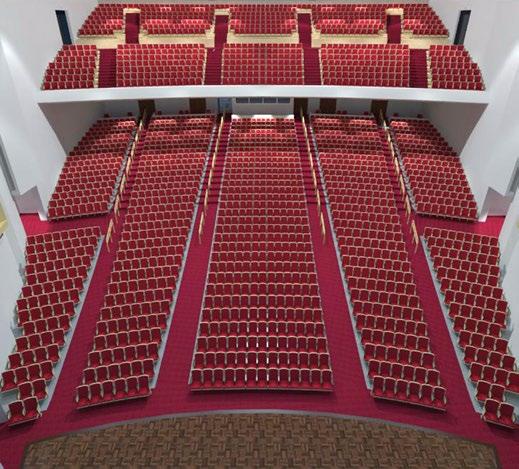
A $1,500 gift will enable you to buy a new tuxedo seat with an engraved plaque that will be on display in the historic venue that has hosted lectures by world dignitaries, scholars, theologians, celebrities, and newsmakers. Highlight your own name on a chair or honor the memory of a loved one.




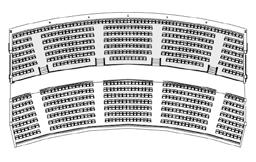
From hosting 2,200 students for weekly community meetings to thousands of parents who entrust their beloved sons to the College each fall—and tens of thousands of visitors who snap photos of the King Statue on the International Plaza throughout the year—King Chapel is the living room in which Morehouse College welcomes world leaders of consequence.
In the sacred hush of The Crown Nave, the walls have countless tales to tell from ministers and leaders of diverse faiths and nationalities— people who share a common love for human kind and respect for people of all racial, economic, and gender identities. Their images have been captured in over 200 oil portraits that pay tribute to their journeys as humble servant scholar-leaders who became solidarity rights champions. Like King, they dedicated their lives to making the world a better place for saving and spreading democracy.
An investment in preserving King Chapel, our global treasure at Morehouse, is an investment in the ideals, values, vision, and courage of emerging servant scholar-leaders, who, in ways small and grand, will carry on King’s legacy and fulfill his dream.

Visit giving.morehouse.edu to Commit to Purchasing a Chair for $1,500.* * Morehouse College employees can purchase chairs for $1,000 for a limited time. BALCONY MAIN LEVEL SAMPLE NAMEPLATE M A K I N G MEN O F C ONSE Q U E N C E
After You Make Your Gift, Scan the QR Code and Add Your Name to Morehouse History. SUPPORT THE
THE GREAT WORLDHOUSE
Martin Luther King International Chapel
The Reverend William Jefferson White ’11, D.D. (Hon.) Founder of Morehouse College
Willie Edward Woods ’85, M.B.A. Chairman, Board of Trustees
David Anthony Thomas, Ph.D., M.B.A., M.Phil. Twelfth President of Morehouse College
The Reverend Robert Michael Franklin Jr. ’75, Ph.D., D.D., D.H.L. President Emeritus
Walter Eugene Massey ’58, Ph.D., D.S., D.Hum., Ed.D., D.H.C., Ll.D., Mult. President Emeritus
Leroy Keith Jr. ’61, Ph.D. President Emeritus
Hugh Morris Gloster Sr. ’31, Ph.D., Ll.D., D.H.L., Litt.D., D.H.C., Mult. Founder of the King Chapel
The Reverend Lawrence Edward Carter Sr., Ph.D., D.D., D.H., D.R.S, D.H.C., Mult. Dean of the Chapel, Professor of Religion, College Archivist, and Curator
The Reverend Terry Farrell Walker Sr. ’89, M.Div. Director, Chapel Relations
The Reverend Kimberly M. Brown Executive Assistant to the Dean Office Manager and Director, Arts in Ministry
The Reverend Quincy James Rineheart, M.Div., S.T.M. Associate Campus Minister and Adjunct Professor of Africana Studies
David Francis Oliver, D.M.A. College Organist
Marva Griffin Carter, Ph.D. Music Consultant and Pianist
Guy F. Mitchell Event Support Manage
Donna E. Thomas Walker, M.Div., M.A.C.E. Volunteer
The Martin Luther King Jr. International Chapel Trustee Committee Members
Willie Woods, Chairman (Ex Officio) David A. Thomas (Ex Officio) Euclid Walker, Chair
Delman Coates
Otis Moss III Charles David Moody Richard Thaler
Harold V. Bennett Lawrence Edward Carter Sr. Terry F. Walker Sr.
Martin Luther King Jr. International Chapel Assistants Executive Board
T. Micah Washington ’23 President
Davion Stacker ’23 Vice President
Sarah Williams C’2025 Treasurer
Jah’Karious Conley ’25 Secretary Andarious Porter ’24 Parliamentarian
Elijiah J.T. Waller ‘24 Historian
30 Morehouse College
See the Victory Before Us and Walk On!
Words by Dr. Uzee Brown Jr. ’72
1 Here we stand, surrogate voices— of those who have been silenced— by tragedy, indifference and time.
We stand amidst a world where deception freely roams, And integrity and truth are held as crime.
Refrain:
Yet reverently we stand the heirs of this great land, and lift our voices high with cheerful song!
Walk on by faith, walk on with hope, with renewed determination to press on sing praise to the God of all creation, the hope of every nation see the victory before us and walk on!
2 Here we stand, bearing witness, to nature’s aberrations. Where disasters, unpredictable plague the near and distant lands.
Oblivious to change, so many fail to heed—foreboding signs the universe commands.
Refrain:
Yet reverently we stand the heirs of this great land, and lift our voices high with cheerful song!
Walk on by faith, walk on with hope, with renewed determination to press on sing praise to the God of all creation, the hope of every nation see the victory before us and walk on!
3 Here we stand, champions of freedom, where courageous voices cry out, and fight for justice every day.
We have thrived amidst the threats that democracy may fail, as we face new jolts and struggles on the way.
Refrain:
Yet reverently we stand the heirs of this great land, and lift our voices high with cheerful song!
Walk on by faith, walk on with hope, with renewed determination to press on sing praise to the God of all creation, the hope of every nation see the victory before us and walk on!
See the victory before us and walk on! Yes, just walk on!
Tha nk you!
WORLD PREMIERE REDEDICATION ANTHEM
PEACE IS POSSIBLE!
Luther King Jr. International Chapel
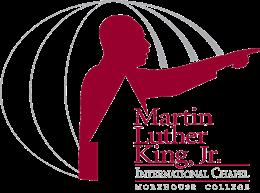
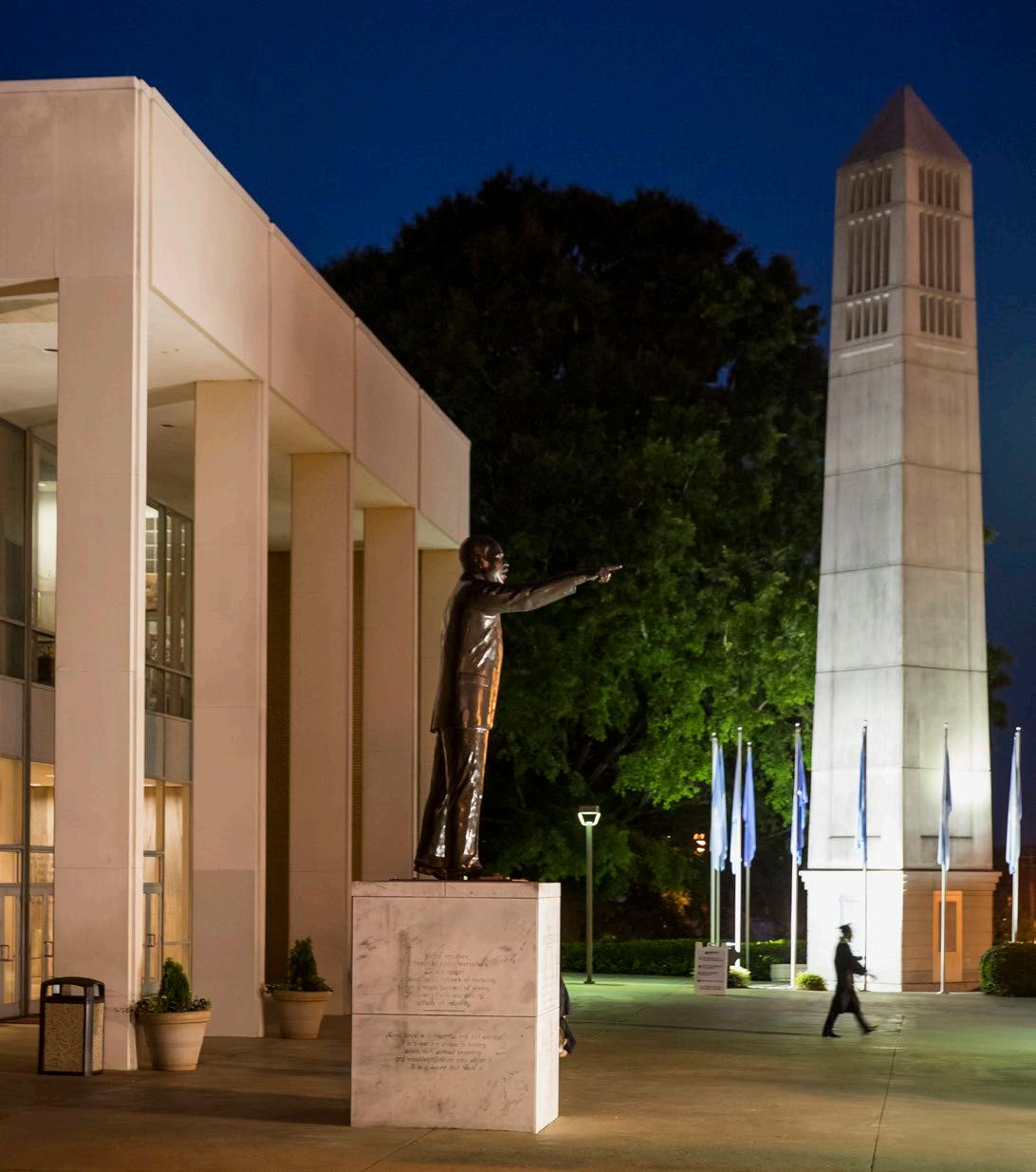
Martin
Morehouse College 830 Westview Drive, S.W. Atlanta, Georgia 30314-3773 P: 470.639.0323 F: 470-639-0976 morehouse.edu/life/campus/ martin-luther-king-jr-international-chapel








 Twelfth President, Morehouse College
Twelfth President, Morehouse College














































































































































